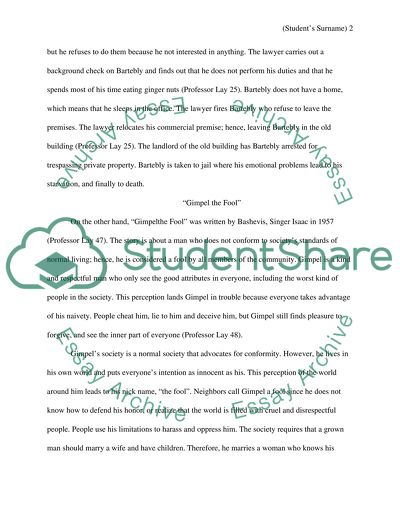Cite this document
(“Comparative Analysis Between Bartelby and Being There and Gimpel the Essay”, n.d.)
Retrieved de https://studentshare.org/literature/1447779-comparative-analysis-between-bartelby-and-being
Retrieved de https://studentshare.org/literature/1447779-comparative-analysis-between-bartelby-and-being
(Comparative Analysis Between Bartelby and Being There and Gimpel the Essay)
https://studentshare.org/literature/1447779-comparative-analysis-between-bartelby-and-being.
https://studentshare.org/literature/1447779-comparative-analysis-between-bartelby-and-being.
“Comparative Analysis Between Bartelby and Being There and Gimpel the Essay”, n.d. https://studentshare.org/literature/1447779-comparative-analysis-between-bartelby-and-being.


